What Life's Been Like as an Expat in the Pandemic
A globetrotting retiree asks fellow expats how COVID-19 has changed things for them
Like most expats, my partner Sarah Wilson and I have had our lives abroad dramatically transformed by the COVID-19 pandemic. And we're far from alone. I asked a few other expats I know — mostly retired — to share what's changed and what hasn't for them due to the virus.
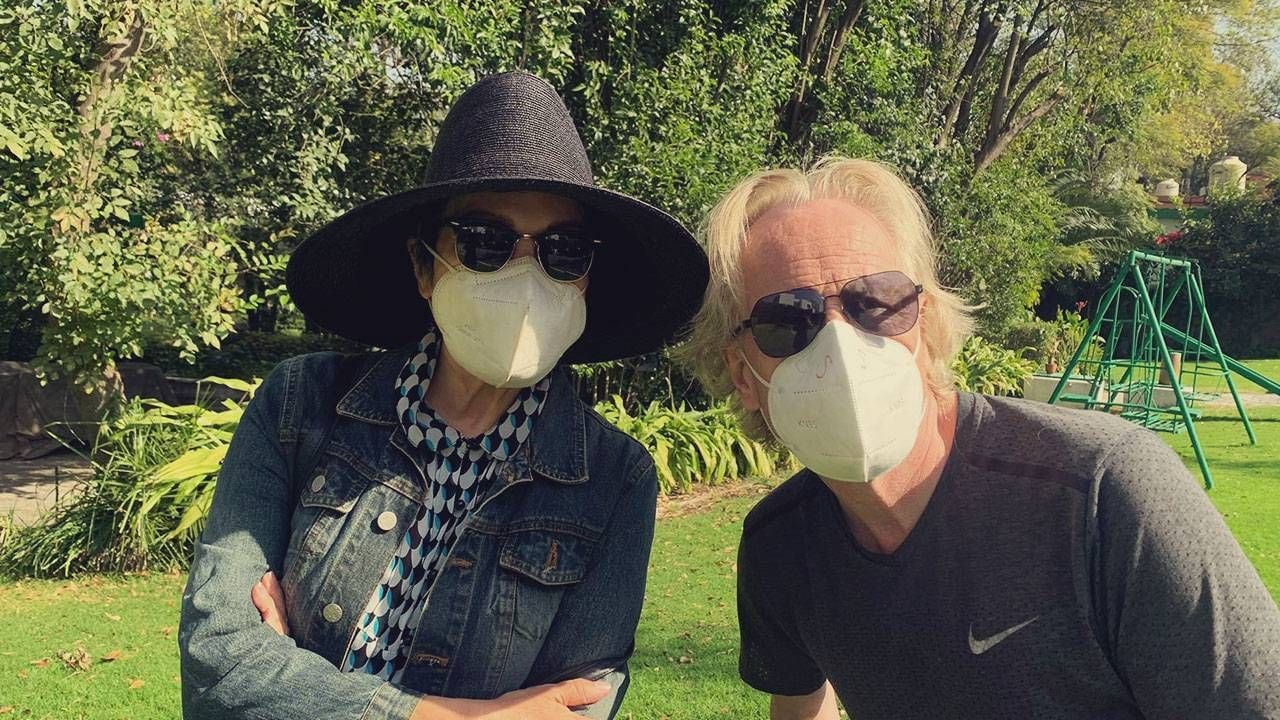
Sarah and I have been living in Malta (an island south of Sicily), for about a year and a half after bouncing around the world; we write about it on our LifePart2 blog. Over the years, we grew accustomed — some would say took for granted — our freedoms to travel, visit friends wherever they were, and explore new places.
They've been frustrated by being unable to visit a family member overseas with a severe illness.
Now, every move beyond our front door — to our neighborhood market, a friend's house, wherever — requires an unprecedented amount of mindfulness and planning. That's true for expats everywhere, as you'll see below:
For their privacy, a few of the expats here have asked me to use only their first names or pseudonyms.
Life in Mexico
Jack and Galeta Blue (not their real names), a native of Holland and a Chicagoan, were living as retirees in Mexico City for the winter of 2019/2020 when COVID-19 became a full-blown pandemic. It didn't take long for them to realize that the lively megalopolis of 26 million they'd called home for the previous four months was, in their words, "starting to look like a petri dish."
Mexico has had about 1.8 million total coronavirus cases through early December (ranking No. 12 in the world) and roughly 110,000 COVID-19 deaths.
Although usually very active in the local art and music scene, Jack and Galeta wisely saw that shuttling across the city on packed public transportation systems and gathering in crowds could quickly turn into superspreader events. So, they stopped exploring, settled in their apartment and reassessed their situation.
After checking how things were going in Europe and the United States, they canceled their already fully booked year of travel and decided to "stay in Mexico, without the City." They found an Airbnb near Puebla, about 100 miles outside the capital, "with lots of windows, in a compound and surrounded by fully grown trees and a lush garden."
Now, they spend their days reading, taking walks on scarcely populated country trails, doing yoga, streaming Netflix and "washing down healthy meals with good wine."
Although they're usually very tuned in to the news and political happenings around the world, they've decided for "mental health reasons" to institute a 22-hour-a-day news blackout.
Sadly, they've been frustrated by being unable to visit a family member overseas with a severe illness. However, they realize that even if they lived next door, they still wouldn't be able to see them in person.
The agreement they made with their new landlord to stay for a few months has turned into eight. But Jack and Galeta they say their landlady has made them feel like part of the family and they're prepared to stay where they are for as long as it takes.
Life in Portugal
As a Seattle-based consultant in the IT Industry, Diane Jacobsen traveled worldwide for years. But Jacobsen knew that when she retired in 2017, she was going to call Portugal home. In February, blissfully loving her life there, just as her adopted country was going into lockdown, she was confronted with a diagnosis of breast cancer.
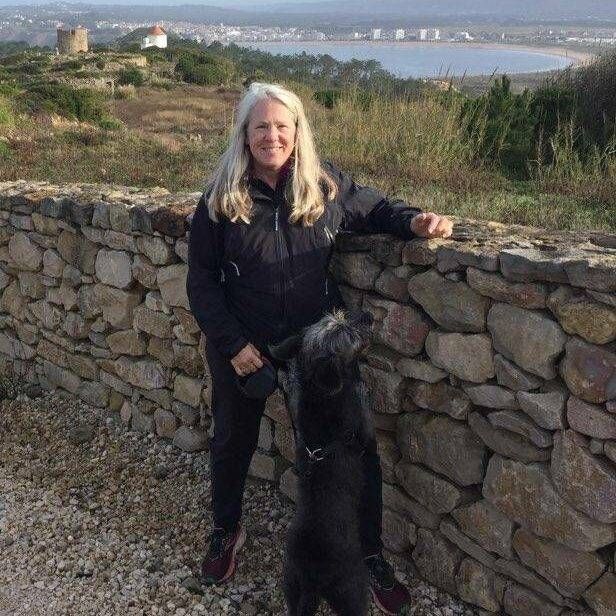
Undeterred by the double dose of bad news, Jacobsen decided she'd hunker down in Portugal among her friends and with her newly adopted rescue dog, Grey, and that she'd keep volunteering at the local animal rescue shelter.
When I asked her how things were going, she told me she knew she'd made the right decision to stay because "Portugal cares about people and they have taken a people-first approach from the beginning. The government acted decisively, issued clear mandates and moved slowly to open businesses and schools back up."
As of early December, Portugal has had roughly 5,000 coronavirus deaths and, with 322,000 total cases, it's No. 34 in the world.
Although Jacobsen misses many of the Portuguese traditions — "cultural norms like Beijinhos (little kisses) and close greetings have been abandoned," she says — she's now going through chemotherapy and grateful to be getting affordable, first-class medical treatment as well as basking in the socially distanced love of her community.
Life in Thailand
My friend "DJ," (not his real name) a not-yet retired expat from Trinidad who now makes his home in Thailand, says, "Surviving in Thailand as a foreigner has had its challenges. But in some ways, it has been better than being in the West."
DJ says he has had a couple of minor incidences where people were extra cautious in screening him, thinking of him as a potential "dirty foreigner."
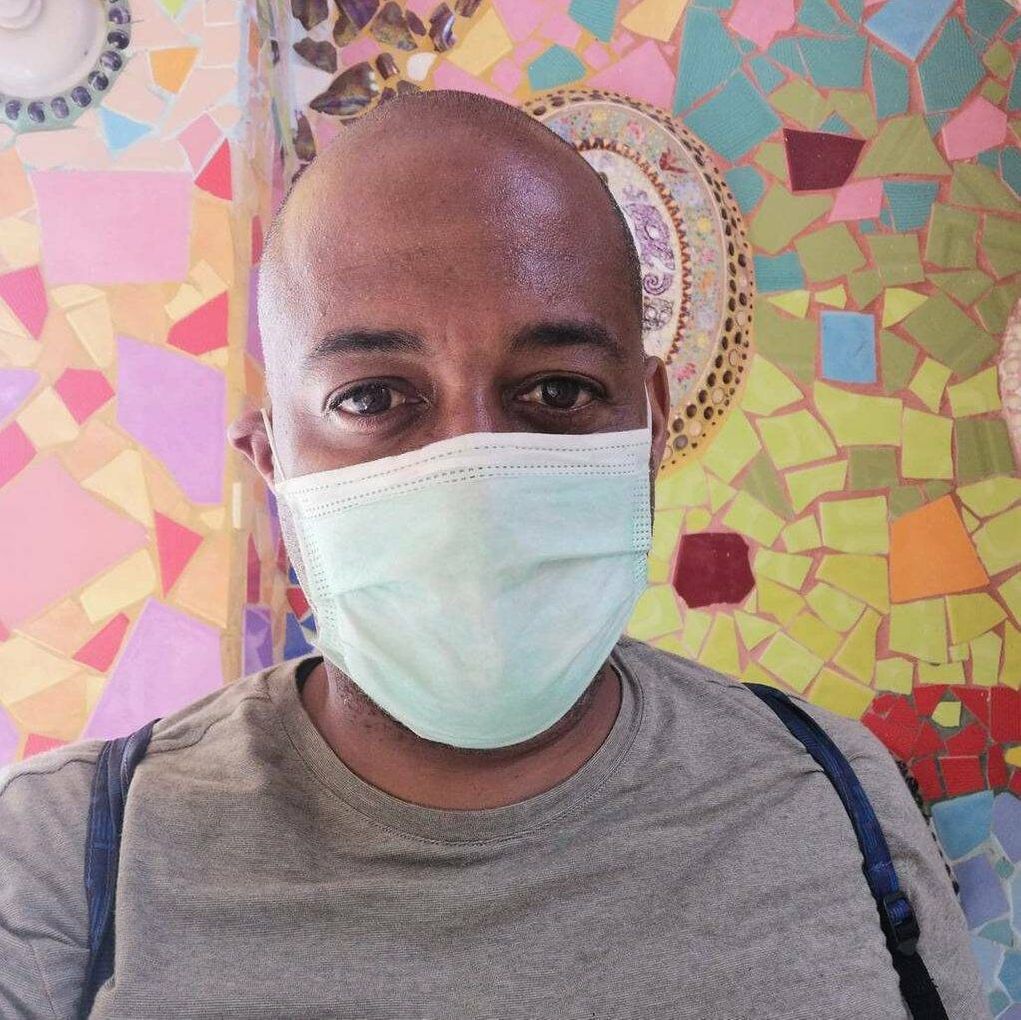
Once, he says, "at a temple in Phitsanulok, they didn't want to let me in."
Otherwise, DJ says, "Economically, it hasn't been easy for people here. Everyone — especially service industries and tourist-dependent areas — was hit hard. However, as a foreigner, if you have an online business, enough savings or a recurring source of income, then Thailand has been a pretty good place to be stuck. "
He adds: "Food and apartment rental prices stayed the same. Delivery services flourished. There was never a twenty-four-hour lockdown, so people were generally free to move around."
I asked DJ if he was happy with his decision to stay in Thailand. "In the early days of the pandemic, I considered heading back west, but when I saw the rapid rise in cases in the West, I figured it would be better to stay put."
He adds: "Amazingly, for a population of approximately seventy million, the reported number of COVID-19 cases has been pretty low at only approximately four thousand." That ranks Thailand at 151; it has had just 60 COVID-19 deaths.
"It hasn't been perfect," says DJ. "Still, the government insists on contact tracing measures, usage of masks and temperature checks at most businesses and facilities."
Life in Canada
When I caught up with my friends Ken and Theresa (they prefer not to reveal their last names), I found that they'd temporally moved to a condo in Victoria on Vancouver Island in Canada before the United States' border closed last March.
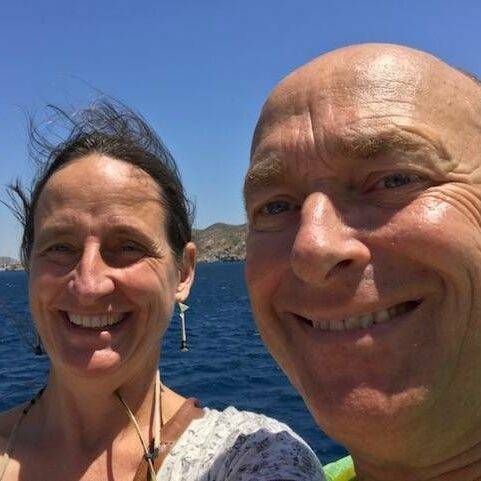
The couple took early retirement from the San Francisco area's health care industry and then began doing international housesitting, as they have for five years. Ken and Theresa told me they planned to stay in Canada through the summer of 2021 and then continue housesitting around the world. They love to travel slowly and see the world, having made friends everywhere from Australia to Zambia.
As happy as they are, Ken and Theresa can't wait to head to someplace nearer the equator.
Even though they "prefer their Christmas lights on palm trees," Ken says they're looking forward to having a chance of a White Christmas.
They say their island's COVID-19 infection rate is very low and the compliance rate with the restrictions is very high.
Overall, Canada has had roughly 423,000 total coronavirus cases (world rank: No. 29) and about 12,800 deaths.
As happy as they are under the circumstances, Ken and Theresa can't wait to head to someplace nearer the equator.
Our Life in Malta
Sarah and I (she's a Brit and I'm an American) had just moved to our new apartment overlooking Grand Harbor in Malta when the pandemic arrived. It felt strange to go from socializing, living everyday life and making travel plans to suddenly living behind restricted borders.
At first, it felt like an overreaction. Still, when dire reports about the coronavirus started pouring in from neighboring Italy, we felt relieved that Malta government officials listened to the scientists and took charge.
To date, Malta has had roughly 10,700 coronavirus cases and 157 deaths; it ranks No. 121 in the world for COVID-19 cases.
Things haven't always been smooth for us during the pandemic here, though.
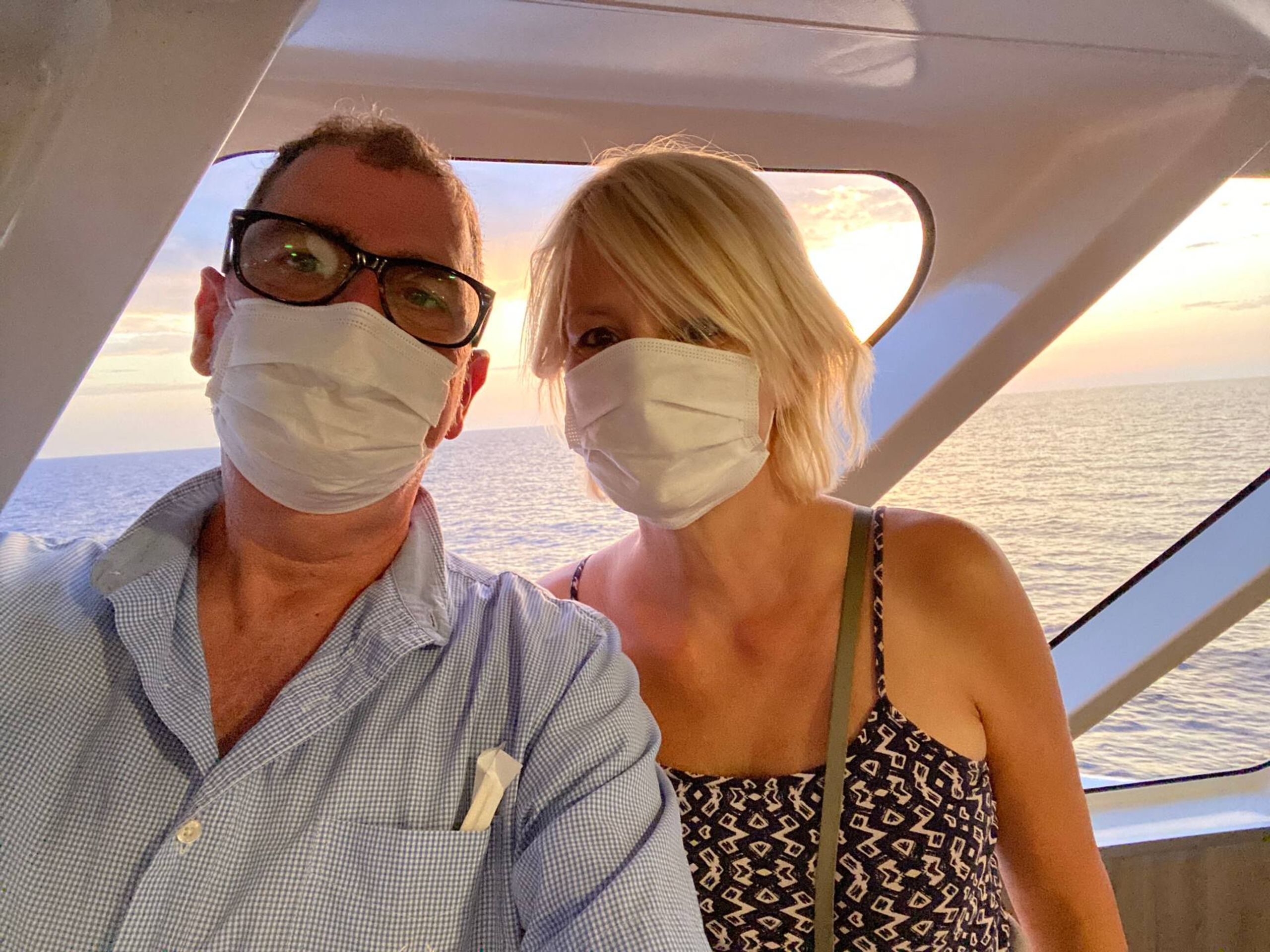
Sarah volunteers teaching English to immigrants and has to wear a mask. (She now realizes how many clues learners ordinarily get from watching someone speak.)
In Malta, mask mandates were on one day but unnecessary the next. These days, it's masks on all the time. For a while, restaurants closed completely; now there's either dining inside or outdoors, but socially distanced.
The temperature check rules have been confusing; currently, it seems, they're only required at immigration points and in shops.
We realize that the science is evolving and that restrictions must change accordingly. Most people here seem to understand the severe nature of COVID-19 and the need to sacrifice today so things won't get out of hand and so we may recover more quickly.
Through it all, we've always been able to get out and into nature and get exercise. Local shops have been continuously well stocked, including hand sanitizer and toilet paper.
While we'd love to be traveling freely, we are grateful that we can still enjoy connecting — electronically — with friends worldwide. And wish them a hugely improved 2021!

